In 2024, the Nigerian government continues its commitment to improving economic development and empowering its citizens through various grants and initiatives. These programs offer valuable opportunities for individuals, businesses, and organizations to access funding and resources for their projects and endeavors.
This blog post will delve into some key federal government grants and initiatives available in Nigeria for 2024, providing insights into their eligibility criteria, application processes, and potential benefits. Whether you’re an aspiring entrepreneur, a non-profit organization, or a researcher, understanding these programs can help you unlock the potential for growth and positive impact.
Key Takeaways
- Some of these grants provided by the federal government are not annual but occasional and provide the needed funding for businesses.
- This year Nigeria’s president Bola Tinubu, launched initiatives to alleviate poverty and help small businesses to boost economic growth.
Table of Contents
Key Government Agencies and Ministries that gives grants in Nigeria
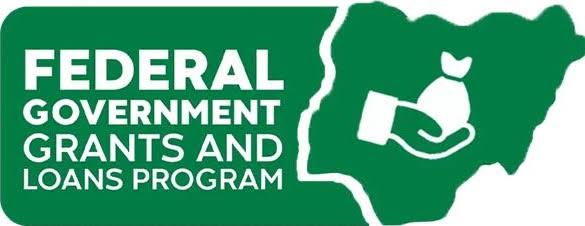
Several government agencies and ministries in Nigeria administer grants and initiatives offer funding for small and medium scale businesses within their various sectors. Some of these grants they provide are not annual but occasional.
These are of the most prominent ministries that give funds in Nigeria:
- Federal Ministry of Agriculture and Rural Development: This ministry may provide grants and support for agricultural projects, including research, development, and infrastructure.
- Federal Ministry of Industry, Trade, and Investment: This ministry may offer grants and incentives to support industrial development and entrepreneurship.
- Federal Ministry of Science and Technology: This ministry may provide funding for research and development projects in various scientific and technological fields.
- Bank of Industry (BOI): The BOI is a government-owned development finance institution that offers loans and grants to businesses, including those in the agricultural sector.
- National Agency for Science and Technology (NAST): NAST provides grants for research and development projects in various scientific and technological fields.
Please note that grant eligibility criteria, application processes, and deadlines change from year to year, so it’s essential to check the official websites of the body or organization providing these grants for the latest information.
See also: 13 types of funding available for agricultural startups in Nigeria and Africa at large
Popular Grants and Initiatives
While specific grants and initiatives may change from year to year, here are some examples of programs that have been offered in the past:
- Agricultural Transformation Agenda (ATA): This government initiative aimed to boost agricultural productivity and create jobs in the sector. It included components of grant funding and technical assistance.
- Youth Entrepreneurship Support (YES) Program: This program offered loans and grants to young entrepreneurs in various sectors, including agriculture.
- Presidential Conditional Grant Scheme (PCGS): This scheme provided small grants to micro-businesses in various sectors, including agriculture.
- Technology Business Incubation Program (TBIP): This program provided support and funding for technology-based startups, including those in the agricultural sector.
To find the most up-to-date information on federal government grants and initiatives in Nigeria for 2024, we recommend visiting the websites of the ministries.
Federal Government Grants and Initiatives in Nigeria for 2024
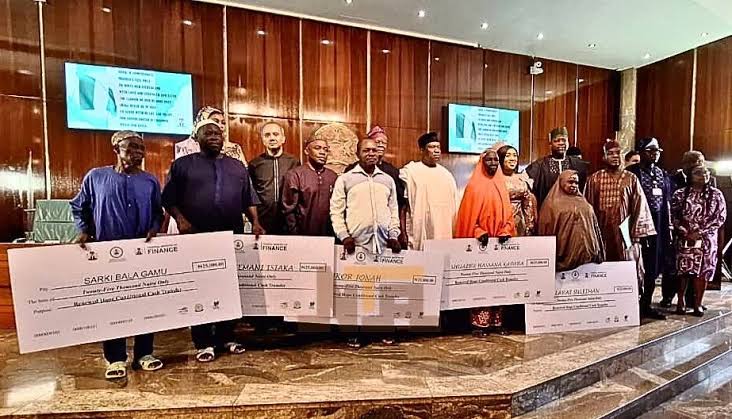
This year, Nigeria’s president, Bola Tinubu, launched initiatives to alleviate poverty and help small businesses to boost economic growth. These initiatives cover many sectors which includes education, energy, housing, and entrepreneurship to provide access to funding, training, and employment for citizens.
Here are the ongoing Federal government funding initiatives for 2024:
1. Student Loan Scheme
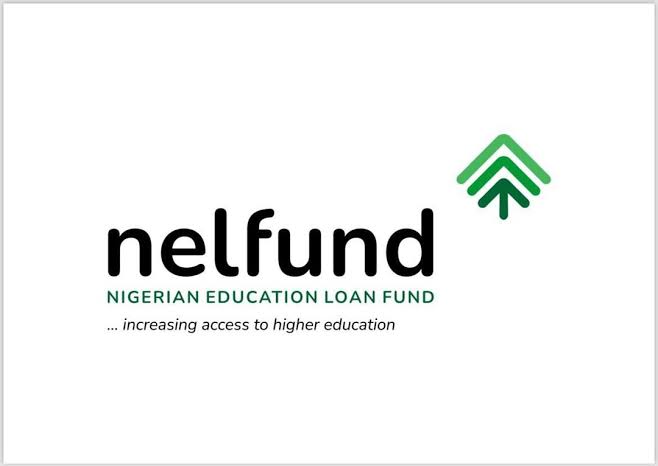
The student loan scheme is an initiative by the federal government to aid students who desire to attend tertiary institutions for education but do not have the financial means. It aims to provide interest-free loans for tuition fees, equal access to higher education for all eligible candidates and reduced financial stress on students and families.
You would need to apply with your scanned admission letter for new students (compulsory) and scanned Student Identification Card (optional).
Simple Steps to apply for the Student Loan Scheme
- Step 1: Register on the Student Loan Application Platform by clicking the “APPLY NOW” button to get started
- Step 2: Click on the “Request for Student Loan” button and complete the loan application steps and submit.
- Step 3: Your application will be reviewed. After successful verification, payments will be made to your institution for institutional charge, while the upkeep loan will be paid to the bank account you have provided in your profile.
2. Consumer Credit Corporation

The Nigeria Consumer Credit Corporation is a Development Finance Institution (DFI) of the Federal Government of Nigeria. It was set up to remove structural, market and policy barriers, and accelerate access to consumer credit to 50% of all working Nigerians, by 2030.
They aim to achieve this by strengthening Nigeria’s consumer credit infrastructure, also ensuring every economically active citizen has a comprehensive credit score. This score becomes personal equity they build, facilitating access to consumer credit.
Secondly, by providing wholesale funding and credit guarantees to Financial Institutions committed to expanding consumer credit access today, cultural re-orientation of the public to responsible consumer credit as a pathway to a higher quality of life. Institutions on effective consumer credit underwriting as a path to growth.
To express your interest in this initiative, visit the official website of the corporation to register.
3. Compressed Natural Gas initiative

The President’s CNG Initiative (Pi-CNG) is part of a plan to help people who are struggling because the government stopped subsidizing fuel. Since fuel prices went up, people are looking for other fuels, like CNG and electric vehicles.
Their pilot program started with 21,000 units and 10 participants workshops. By the end of 2024, they aim to reach 150,000 units and 250 participants in workshops. Looking ahead to 2027, their goal is to achieve 1 million units and 500 participants in workshops.
4. Digital and Creative Enterprises (iDiCE) Program

iDICE is an initiative of the Federal Government of Nigeria, executed by the Bank of Industry, to promote investment in technology and creative ecosystems in the country.
As part of the Government’s effort to create more sustainable jobs in these industries, iDICE is set up to build capacity and up-skill Nigerian youth (from ages 15-35), in technology and creativity to increase their employability, foster innovation, and support the emergence of more entrepreneurs.
iDICE is co-funded by the African Development Bank (AFDB), Agence française de développement (AFD), Islamic Development Bank (IsDB), and other private investors.
Some program objectives as it relates to funding:
- Setup and operationalization of iDICE Fund.
- Support startups and MSMEs with access to finance.
- Capacity building provided to support iDICE Funds investee pipeline development.
5. Skill-UP Artisans Program
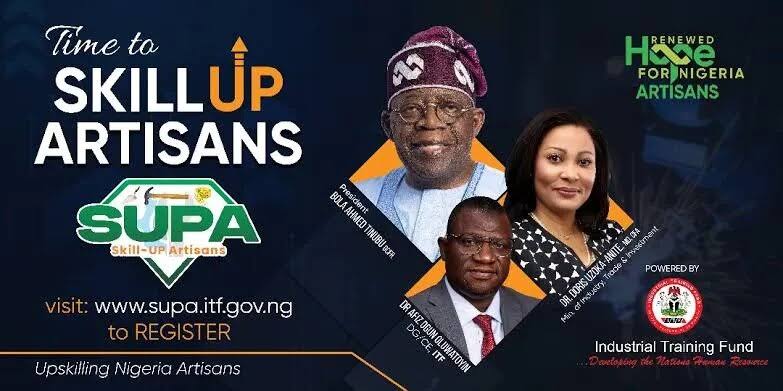
The Federal Government, through the Industrial Training Fund, has commenced upskilling training for five million youths nationwide under the Skill Up Artisan Program. This program was commenced
SUPA is a comprehensive initiative that aims to enhance quality service delivery through training, certification and licensing of Nigerian artisans to promote the growth of small and medium sized enterprises.
The training would be in Hausa, Igbo, Yoruba and Pidgin as every Nigerian understands at least one of these languages.
This program was initiated to boost the skills of artisans in the country so they can be able to compete with international standards. If you are interested in this initiative, visit the official SUPA website for information on how to join.
6. National Youth Talent Export Program (NATEP)
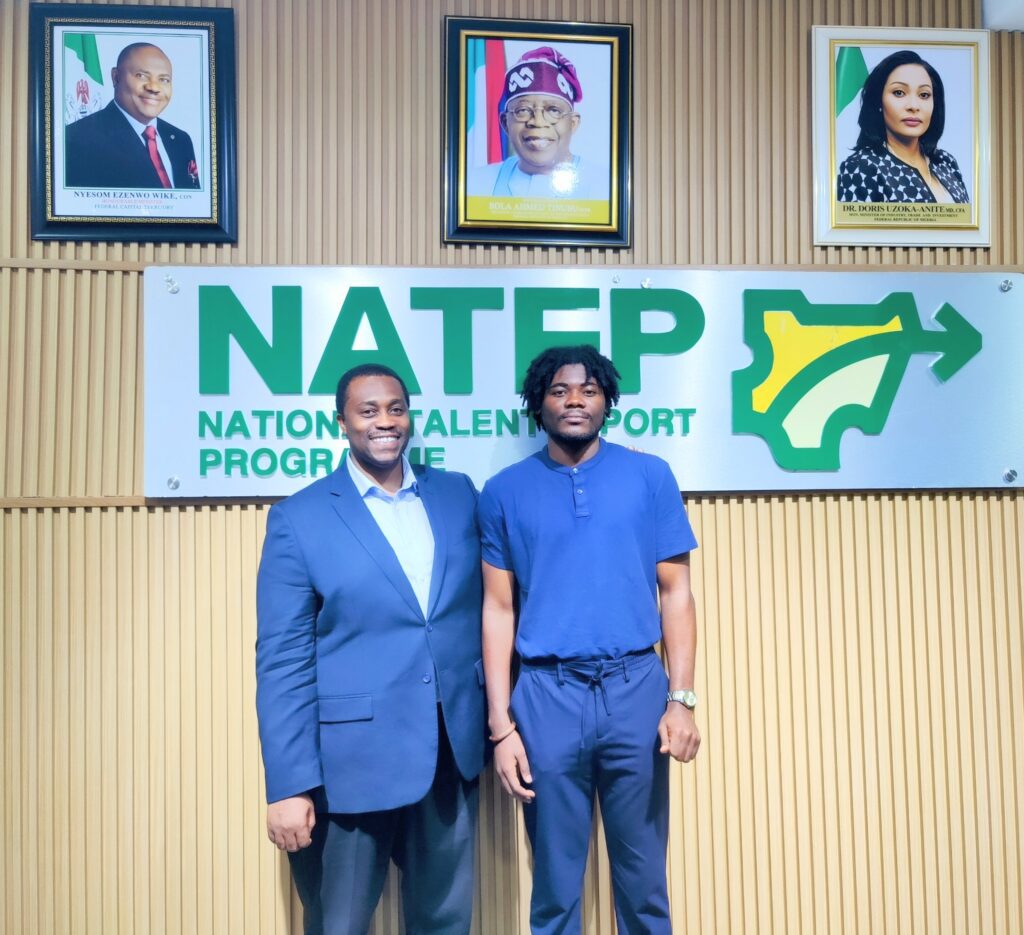
NATEP initiative seeks to position Nigeria as an export hub for talent outsourcing in Africa following the example of India, Bangladesh, Mexico and The Philippines. NATEP is part of the strategy towards achieving President Tinubu’s agenda for job creation.
The NATEP initiative will target the creation of 1 million in-demand jobs across Nigeria, over a 5-year period. This initiative will create millions of jobs for our young people over the next 5 years and beyond. Secondly, it will bring in foreign exchange that our economy needs through remittances from talents that will be exported abroad and those that will be living in Nigeria and working remotely for organisations outside Nigeria and generate huge tax income for state governments.
Note: Information about available federal government grants in Nigeria can be found through the following sources:
- Government websites: The official websites of government ministries, departments, and agencies often list available grants and their eligibility criteria.
- News outlets: Local and national newspapers, online news portals, and social media platforms often report on new grant programs and opportunities.
- NGOs and development organizations: NGOs and international development organizations may also provide information about government grants and support the application process.
Conclusion
The Federal Government of Nigeria has demonstrated a strong commitment to supporting various sectors and initiatives through grants and programs in 2024.
If they address the common challenges faced by young people wishing to start their own businesses, and build on the successes of existing initiatives, the Federal Government of Nigeria can continue to make a significant impact on the lives of its citizens and drive sustainable development.
FAQs
What are federal government grants?
Federal government grants are financial assistance provided by the Nigerian government to individuals, organizations, or businesses to support various projects and initiatives.
How do I apply for a government grant?
The application process for government grants typically involves submitting a detailed proposal that outlines the project, budget, and expected outcomes.
Are there grants available for social welfare programs?
Yes, the government provides grants to support social welfare programs, such as poverty alleviation, healthcare, and education.
References


